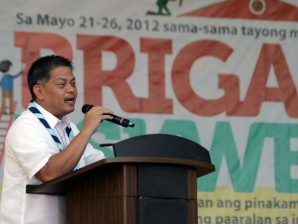MANILA, Philippines—Education Secretary Armin Luistro has reimposed a moratorium on the purchase of supplementary reading, reference books and other instructional materials, including multimedia and computer software packages, for the public schools.
In an order dated Sept. 26, Luistro said the Department of Education (DepEd) would review whether or not the supplementary instructional materials were needed in the first place and whether they were reasonably priced and purchased through proper public bidding.
He said the moratorium applied to the preschool up to high school levels and covered the acquisition of instructional materials for programs such as Mother Tongue-based Multilingual Education, Every Child a Reader, Enhancement of English, Science and Mathematics Instructions, Gender Development, and special programs such as those for special education.
Luistro also ordered all DepEd officials not to recommend or endorse the purchase of instructional materials using the controversial Priority Development Assistance Fund (PDAF) of members of Congress or the Special Education Fund (SEF) of local government units.
“Pending completion of this review, there shall be a moratorium on the procurement of IMs (instructional materials) until this issuance is rescinded or revoked,” said Luistro, whose order took effect immediately.
“Any pending transaction that has not been obligated yet must be suspended and/or terminated,” he added.
The DepEd every now and then imposes a moratorium on the procurement of supplementary and reference materials.
The last time a moratorium was imposed was in 2007, when then Education Secretary Jesli Lapus said they had to make sure available funds were used to address the backlog in textbooks and teacher manuals.
The DepEd eventually lifted the moratorium and issued a list of approved supplementary and reference materials in 2009, 2010 and 2011.
The DepEd is in the middle of an overhaul of the basic education curriculum under the K to 12 (Kindergarten to Grade 12) reform program.—Dona Z. Pazzibugan
